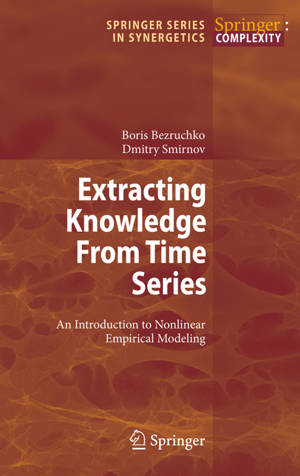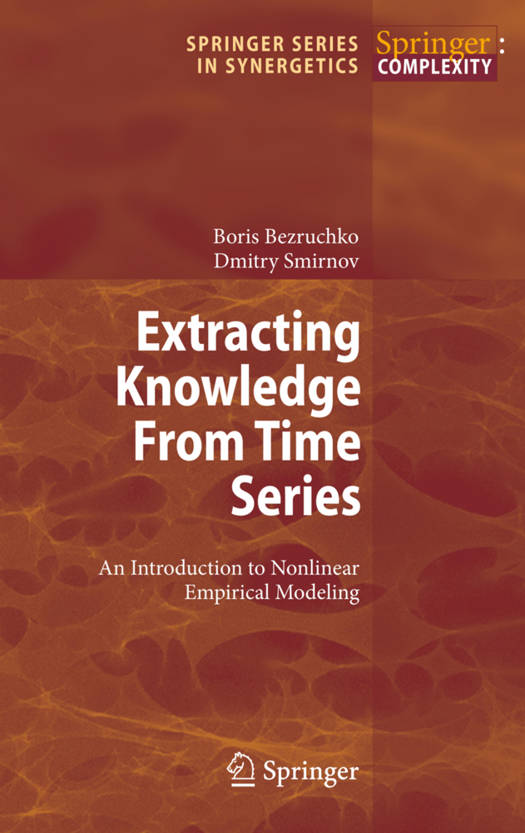
- Retrait gratuit dans votre magasin Club
- 7.000.000 titres dans notre catalogue
- Payer en toute sécurité
- Toujours un magasin près de chez vous
- Retrait gratuit dans votre magasin Club
- 7.000.0000 titres dans notre catalogue
- Payer en toute sécurité
- Toujours un magasin près de chez vous
Extracting Knowledge from Time Series
An Introduction to Nonlinear Empirical Modeling
Boris P Bezruchko, Dmitry A Smirnov
52,95 €
+ 105 points
Format
Description
Mathematical modelling is ubiquitous. Almost every book in exact science touches on mathematical models of a certain class of phenomena, on more or less speci?c approaches to construction and investigation of models, on their applications, etc. As many textbooks with similar titles, Part I of our book is devoted to general qu- tions of modelling. Part II re?ects our professional interests as physicists who spent much time to investigations in the ?eld of non-linear dynamics and mathematical modelling from discrete sequences of experimental measurements (time series). The latter direction of research is known for a long time as "system identi?cation" in the framework of mathematical statistics and automatic control theory. It has its roots in the problem of approximating experimental data points on a plane with a smooth curve. Currently, researchers aim at the description of complex behaviour (irregular, chaotic, non-stationary and noise-corrupted signals which are typical of real-world objects and phenomena) with relatively simple non-linear differential or difference model equations rather than with cumbersome explicit functions of time. In the second half of the twentieth century, it has become clear that such equations of a s- ?ciently low order can exhibit non-trivial solutions that promise suf?ciently simple modelling of complex processes; according to the concepts of non-linear dynamics, chaotic regimes can be demonstrated already by a third-order non-linear ordinary differential equation, while complex behaviour in a linear model can be induced either by random in?uence (noise) or by a very high order of equations.
Spécifications
Parties prenantes
- Auteur(s) :
- Editeur:
Contenu
- Nombre de pages :
- 410
- Langue:
- Anglais
- Collection :
Caractéristiques
- EAN:
- 9783642264825
- Date de parution :
- 05-11-12
- Format:
- Livre broché
- Format numérique:
- Trade paperback (VS)
- Dimensions :
- 156 mm x 234 mm
- Poids :
- 603 g

Les avis
Nous publions uniquement les avis qui respectent les conditions requises. Consultez nos conditions pour les avis.






